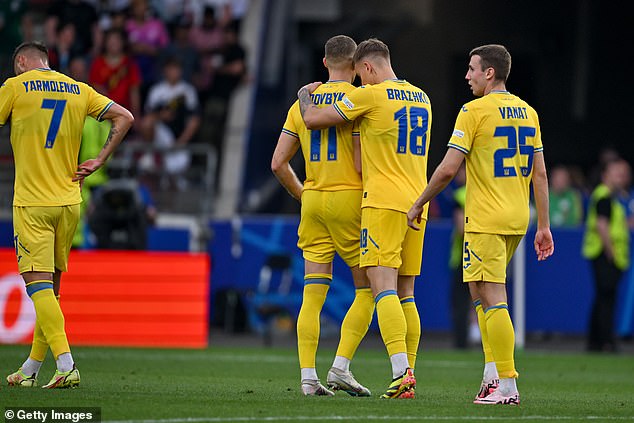At the Ukrainian Euro Cup base, in the spa city of Wiesbaden, they were removing the images, loaded with meaning, that recalled how the team’s presence transcended football.
Each player was photographed with words for the soldiers fighting against Putin’s army. ‘You are always in our thoughts. You are the pride and honour of Ukraine. Glory to Ukraine!’
“Glory to the heroes!” read the message from Chelsea striker Mykhailo Mudryk. From Everton defender Vitaliy Mykolenko: “We strive to be as infallible as you! Glory to Ukraine! Glory to the heroes!”
How urgently that reminder has been needed in recent weeks! In many places, the reality of the war Putin is waging is fading from public consciousness. In Germany, welfare payments – the “citizen’s income” – are now being reduced for Ukrainians who have sought exile.
You may not have heard that a Russian “glider bomb” destroyed a school in Kharkiv on Sunday. Nor that the basic act of watching the team play has posed unimaginable challenges for Ukrainians.
Ukraine was eliminated from Euro 2024 after finishing last in Group E with four points
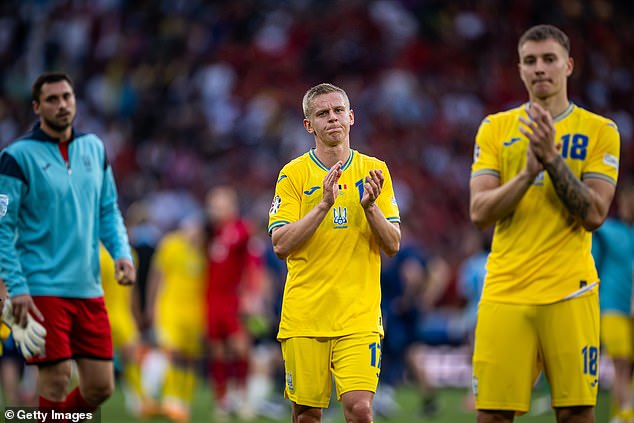
The team drew 0-0 with Belgium after facing a brave challenge.
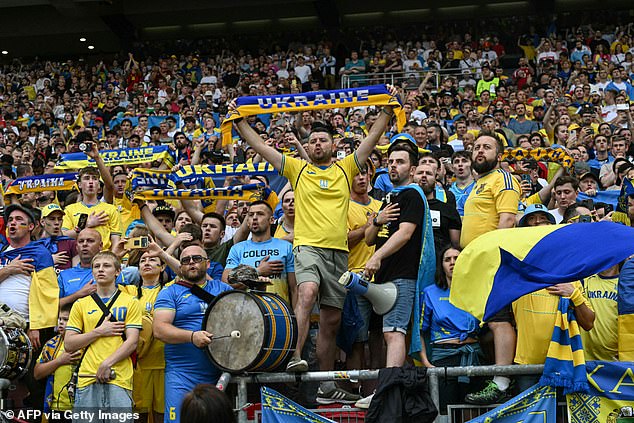
Fans cheered their players on as they pushed the European giants to the end of their encounter on Wednesday.
The selective destruction of power plants by Putin’s army – three people were killed in a major grid attack in Kharkiv on Saturday – means power supplies in the country are rationed to three or four hours a day. People must decide between charging their phones or plugging in the refrigerator.
On Sunday I headed to Wiesbaden, the bucolic town near Frankfurt that, with its blackthorn hedges and wildflower beds on the road to the team base, seemed a million miles from the horrors of places like Kharkiv and Vovchansk. .
The risk to the players’ personal safety was evident in the lobby, guarded by German police. Helicopters had been hovering over the team as it was transported by bus to the stadiums.
Wiesbaden is the base of a major US Army garrison, which is a coincidence, although security has improved. “We are very happy to be in Europe,” commented the team’s press officer, Tetiana Yashchuk.
For about 20 minutes, incessant questions about football and the impending Belgium game came at the two players designated to speak that day, in a manner that suggested perhaps the war was territory the team had grown tired of addressing.
With some hesitation I asked what it was like to play knowing that many Ukrainians were watching this instead of plugging in the refrigerator.
These players seized the opportunity. Shakhtar Donetsk striker Georgiy Sudakov described the anguish he had seen in his daughter when they found themselves trapped in a lift on the way home.
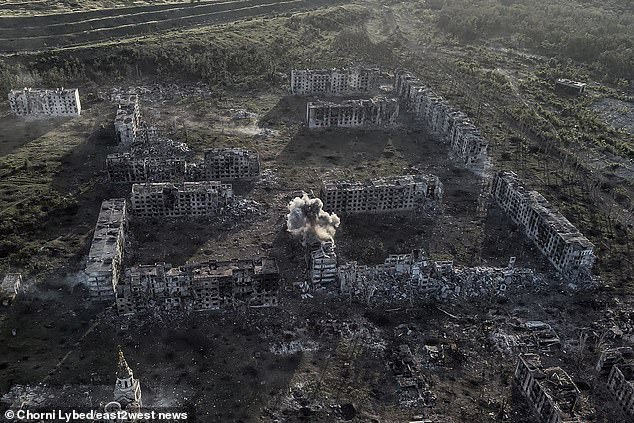
Russia’s thermobaric bombs have pulverized the once quiet Ukrainian town in the Donetsk region (pictured above: ruins of multi-story buildings destroyed by flamethrower bombs).
“We know there will be places where there will be electricity for us to gather and watch our games,” he said. “We know that the people who defend our country are watching as well.”
Belgium’s next question came when Maksym Talovierov, the defender playing in Germany, interrupted me to say he also wanted a chance to speak. “It doesn’t matter if someone can’t watch football,” he told me in English.
“We understand that they will try to support us, no matter what, and we feel that too. It is very important to us. We would like to make our country proud.”
They kept their word. When Ukraine was eliminated after a goalless draw with Belgium – the first team in the 32-team qualifying system to have four points and not make it to the knockout stage – I received a message from my friend Svetlana, who is living in exile in Berlin. “They fought until the end,” she told me.
I visited her on Saturday at her home in the Reinickendorf district, north of the city. The apartment is small but very well laid out, no space is wasted: it’s his way of making the most of her life here. The day I visited, I had invited other Ukrainians and there will be no better times than that in this tournament.
The print on the small mat outside Svetlana’s front door reads: “Home” and there was a terrible sadness in that. Her home is in Avdivka, 1,600 miles away, on the front lines of the war. So is her husband, one of many left to defend their lands.
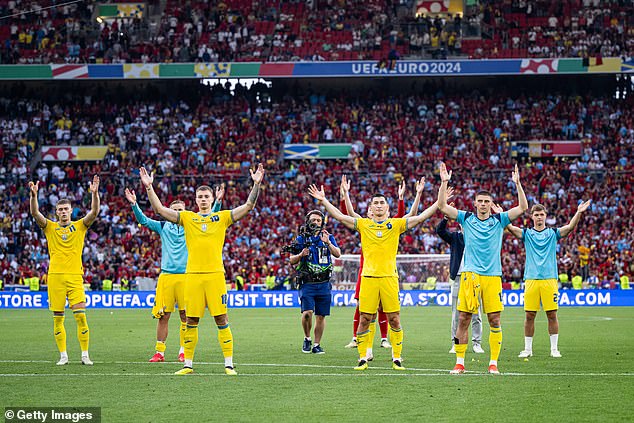
The team applauded its fans after giving everything to advance to the round of 16
When he arrived in Germany he thought it would be for two weeks. That was two years ago.
“See you next time. Come back,” Svetlana said as I left, smiling but knowing in her heart that there is no end in sight to the war and this exile. For a moment, the players illuminated and served as a reminder of a larger struggle. They have accomplished more here than anyone ever will.


